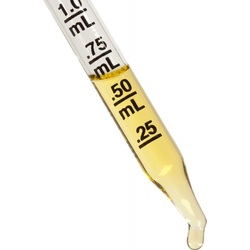 Vitamin D is one of the most widely accepted and rigorously researched natural substances. Numerous government and scientific agencies support vitamin D for health conditions such as bone health, cancer prevention and immune function. However, a recent meta-analysis suggests that the health links to vitamin D are weak and unconfirmed.1 Critics have already slammed the study on a number of points, calling into question its conclusions.2 Vitamin D is one of few topics that conventional and alternative medicine can actually agree about since the evidence to date is overwhelmingly positive. Have we all been wrong about the benefits of vitamin D? As with all new studies and reviews this one also deserves a closer look to confirm the conclusions. 1) Beware shock and awe titles: The conclusion of the aforementioned study states that “highly convincing evidence of a clear role of vitamin D does not exist for any outcome, but associations with a selection of outcomes are probable.” This seems like a cautious and conservative statement which is no surprise considering the type of review it is and the nature of vitamin D testing and supplementation (keep reading below for detiails) however sensationalist titles like “Vitamin D Supplements Don't Help Your Health” (wedMD) don’t accurately reflect the details of the paper.3 2) The most recent study was a meta-analysis of systematic reviews and meta-analyses. This approach is problematic for making meaningful conclusions from the results because the board and general viewpoint loses any of the important details of each study. A good analogy is zooming out while looking at google maps in order to get a better over all view but when you zoom to far you lose any meaningful details. Meta analysis and systematic reviews are already a “zoomed out” perspective, which tend to have vague and conservative conclusions. It is little surprise that this vitamin D review found no positive associations. 3) Another risk of a meta-analysis is that there is bias in what studies were selected. The reviews that were selected to be included in the meta-analysis were subjective and therefore open to bias. This means some studies with positive results may not have been included and some reviews with flawed methods were included. Even one of the authors of the paper stated the large meta-analyses are ‘subjective and suboptimal.’ 4) Another recent meta-analysis on Vitamin D and specific causes of death found that observational studies show that higher vitamin D levels were associated with lower risk on death from cancer, heart disease and other conditions.4 However, randomized controlled trials found no association.4 This highlights the difficulties and variation that all vitamin D trials are subject to: a) The dose of vitamin D is usually to low. If you are already deficient than 1000 IU (Health Canada’s daily limit) will do little to bring you up to protective levels. A higher dose is needed to rapidly restore levels while a lower dose is adequate for maintenance. b) Most people don’t remember to take vitamin D on a daily basis. Some studies have showed that high doses (10,000 – 50,000 IU per week) are better to build levels and people have an easier time remember to take less frequent doses. 5,6 c) Measuring vitamin D level in the blood is notoriously inaccurate. There most likely is a wide variability in the testing used in the studies included in the meta-analysis. Even the standard testing for 25-OH vitamin D has wide margins of error in lab analysis. d) Vitamin D is fat soluble, meaning it should be taken in an oil base and with a meal. Without this, people may not be absorbing the vitamin D they are supplementing orally. Additionally, some people may not be able to digest and absorb fats if they have poor lipase and gallbladder function. There is an overwhelming amount of positive evidence that adequate vitamin D levels are protective from a wide variety of health issues. In my opinion this review does not present any compelling facts to stop using vitamin D. It does highlight that we always need more research to better understand this complex neuro-hormone. We need to find more accurate testing methods and efficient supplementations strategies. To get the most out your vitamin D use consider the following. 1) Look for an oil based vitamin D supplement. Take it with meals containing a fat since this will increase the secretion of bile to help absorb fats. 2) Use vitamin D3 over D2 since it’s the active form used the body. 3) Get daily exposure to natural sunlight in the summer months. 4) Get your 25-OH vitamin D levels tested. It’s the only way to guide you to your optimal dose. If you are deficient then consider a high dose under the supervision of a licensed practitioner that can follow your calcium levels. Don’t just supplement with high doses without testing first. There is a real risk of developing excess calcium levels. References 1) Theodoratou E1, Tzoulaki I, Zgaga L, Ioannidis JP. Vitamin D and multiple health outcomes: umbrella review of systematic reviews and meta-analyses of observational studies and randomised trials. BMJ. 2014 Apr 1;348:g2035. doi: 10.1136/bmj.g2035. 2) http://www.nutraingredients.com/Research/BMJ-vitamin-D-research-attacked-un-nuanced-flawed-irresponsible/?utm_source=newsletter_daily&utm_medium=email&utm_campaign=Newsletter%2BDaily&c=zJaX8RDnc%2B65z599DRJwiP7uqhh5AzMb 3) http://www.webmd.com/vitamins-and-supplements/news/20140124/vitamin-d-supplements-dont-help-your-health-review 4) Chowdhury et al. Vitamin D and risk of cause specific death: systematic review and meta-analysis of observational cohort and randomised intervention studies. BMJ. 2014 Apr 1;348:g1903. doi: 10.1136/bmj.g1903. 5) Havens et al. Serum 25-hydroxyvitamin D response to vitamin D3 supplementation 50,000 IU monthly in youth with HIV-1 infection. J Clin Endocrinol Metab. 2012 Nov;97(11):4004-13. doi: 10.1210/jc.2012-2600. Epub 2012 Aug 29. 6) Middleton et al. Vitamin D deficiency: A simple algorithm employing weekly administration of 50,000IU of vitamin D. Am J Otolaryngol. 2014 Mar-Apr;35(2):85-8. doi: 10.1016/j.amjoto.2013.12.002. Epub 2013 Dec
0 Comments
|
Welcome To My Blog
My goal is to post thought-provoking and informative articles so you can learn and apply the latest news from the world of natural health. Feel free to post comments and start a conversation. Stay tuned to my twitter and facebook feeds for the latest posts.
Archives
December 2015
|

 RSS Feed
RSS Feed

